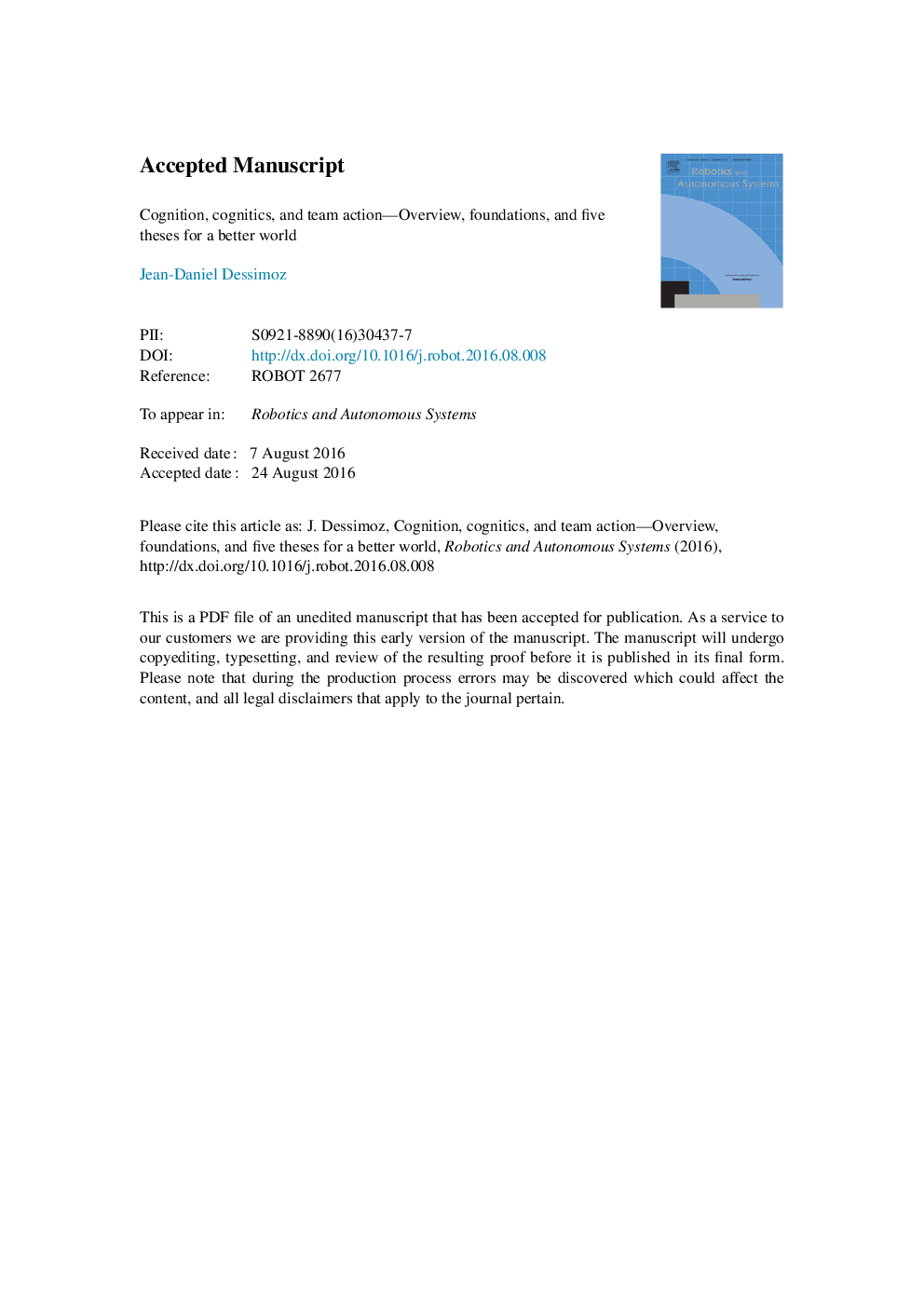| Article ID | Journal | Published Year | Pages | File Type |
|---|---|---|---|---|
| 4948881 | Robotics and Autonomous Systems | 2016 | 13 Pages |
Abstract
Consider now a shift of attention onto cognition. Novel definitions and metrics have been made, and it is time to reap the benefits, and to boost the development of intelligent autonomous systems. Mankind has gained a decisive advantage, in the race for survival and in the perspective of enjoyable lives, when cognitive abilities, i.e. cognition, appeared and started to develop in humans. Now cognition appears also as a crucial faculty to harness, i.e. to implement on machines; this is the field of cognitics. What is learnt about cognition for the purpose of machines, by a mirror effect, also affects the way we may recognize the role of cognition for ourselves, as humans. What is cognition? How does it relate to classical concepts, which appear much less well defined than expected? A summary of critical answers to these questions is sketched below. Then five theses about cognition are summarized: cognition to know the real world, to explore and perceive, to model; cognition for defining alternative worlds and possible futures, visions, and anticausality; cognition for effective control; cognitics for a large scale, technical deployment of cognition; and social cognitics, a foundation for team action and increased momentum for change. The five theses can be seen both as paths toward better insights in human and social nature and also as a roadmap for simultaneous and iterative processes capable to freely foster a better future for individuals and society. The paper finally includes as well an overview of MCS cognition theory, with some additional contributions, notably relating to foundations and time derivative aspects.
Related Topics
Physical Sciences and Engineering
Computer Science
Artificial Intelligence
Authors
Jean-Daniel Dessimoz,
